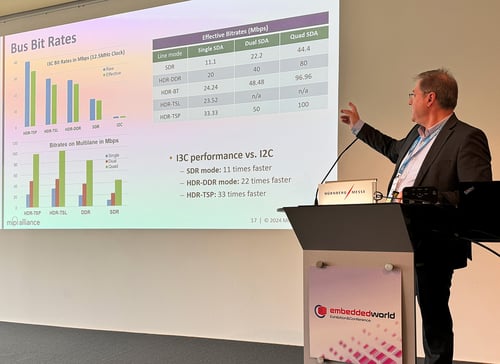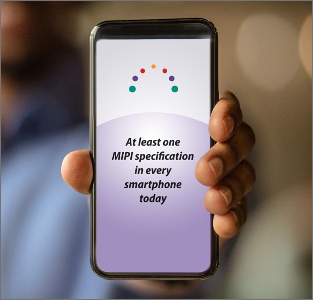Download MIPI NIDnT℠
Using available ports on a device for end-product testing
MIPI Narrow Interface for Debug and Test (MIPI NIDnT) defines a standardized way to use functional ports on a device for debug and test procedures. The specification makes it easier for developers to identify problems in complex designs to ensure high-quality products. It also reduces development costs because it alleviates the need for expensive, proprietary testing tools.
A key feature of MIPI NIDnT is an innovative use of USB Type-C v1.2 "alternate modes" to facilitate debug and test over USB Type-C pins. The capability provides conveniences to developers in many device segments because USB Type-C is gaining popularity as a robust connector for small, thin devices such as smartphones, tablets and laptops as well as IoT, augmented reality and virtual reality products.
MIPI NIDnT is versatile, offering designers the flexibility to perform debug and test over other interfaces that are widely used in mobile and mobile-influenced designs. Interfaces supported by the specification include USB 2.0 Micro-B/-AB, microSD, HDMI and DisplayPort.
MIPI NIDnT and the MIPI Discovery and Configuration Specification for Narrow Interface for Debug and Test (MIPI DisCo for NIDnT℠) complement each other. This is a standardized software tool that makes it possible for test device software to easily discover and configure the hardware debug and test capabilities enabled by MIPI NIDnT.
The version currently available for download here is v1.2.1 (adopted June 2022), which adds references for MIPI I3C® in the informative sections, as well as inclusive terminology updates.
The previous public version (v1.2) is available upon request.
All MIPI debug and trace specifications are available for download and use by the public and the open source community. Members of MIPI Alliance enjoy benefits including access to relevant licenses and opportunities to participate in development activities, interoperability workshops and other events.






